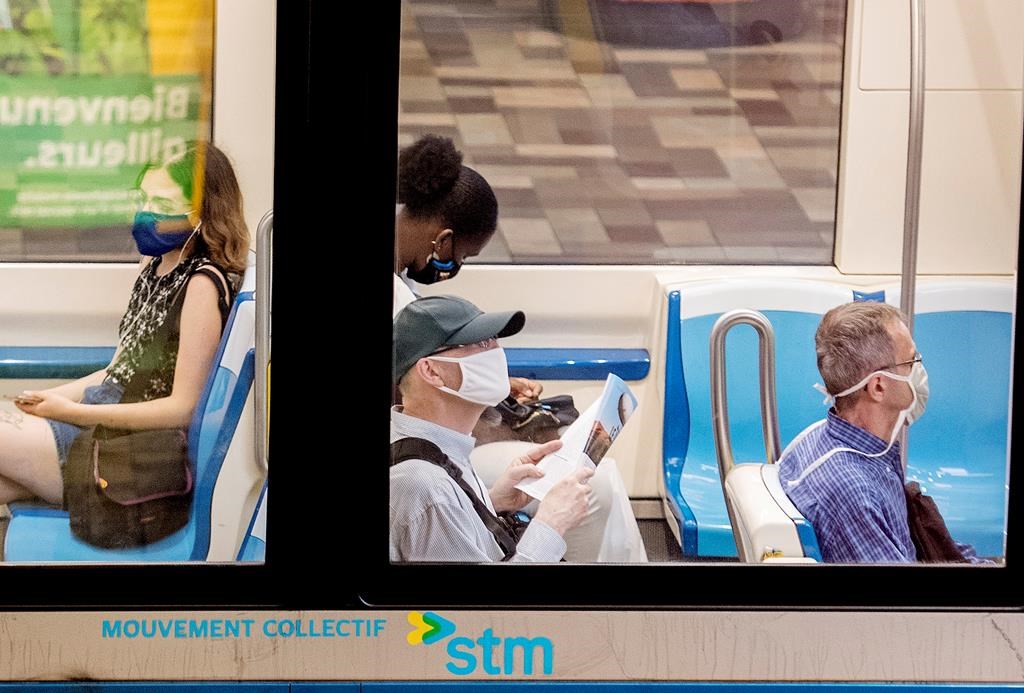The mental health of Montrealers continues to be poorer compared to other Quebecers since the start of the COVID-19 pandemic, according to a survey by the Santé publique de la métropole.

The survey found that mental health took a dive in September 2020 but improved when lockdown measures were eased the following spring.
Easing restrictions appeared to have a beneficial effect on Montrealers’ levels of anxiety and depressive symptoms, which have since stabilized. Véronique Nadeau-Grenier, who works for the CIUSSS du Centre-Sud-de-l’Île de Montréal, points out that it’s “still higher than you would normally expect.”
In February 2021, one in three Montrealers reported to have symptoms associated with generalized anxiety disorder or depression.
“It’s a lot of people anyway,” she said.
Elsewhere in Quebec, around one in five people reported the same symptoms.
“And this remains worrying,” Nadeau-Grenier said. “It remains a problem.”
READ MORE: Quebec reports 386 new COVID-19 cases, hospitalizations down slightly
She said, however, that the symptoms were reported in a survey and were not confirmed by clinical examination and diagnosis.
The most recent survey on the “psychosocial impacts of the COVID-19 pandemic” looked between Dec. 2020 to Feb. 2021, according to Nadeau-Grenier. She works as a planning, programming and research officer at Montreal public health.
In February, one in 15 respondents in Montreal had seriously considered suicide in the previous 12 months, compared to one in 20 in Quebec.

Get weekly health news
There seems to be a link with the epidemiological situation, according to Nadeau-Grenier. At the end of February, the government started lifting certain COVID-19 measures and many citizens could glimpse the light at the end of the tunnel.
“Things seemed to be going best at that point,” she said.

The easing of the confinement measures also made it possible to break social isolation.
Nadeau-Grenier added that since the start of the pandemic, public health authorities have promoted crisis lines and various mental health support services. In the spring, citizens were perhaps more informed of the resources available and knew that they did not need to be in crisis to seek help.
It is important to note that this survey is based on a non-probability sample and therefore is not representative of the entire population. It is useful for public health to see how things have evolved since March 2020 and to identify which groups are suffering the most during the pandemic.
Nadeau-Grenier explained that the data helps prioritize interventions, such as with young adults, anglophones and essential workers, and those in the health network who have been particularly affected by the health crisis.
“We can offer them more psychological support,” she said.
Why is mental health worse in Montreal?
The psychological health of Montrealers was already poorer than that of residents of other cities before the pandemic, according to Nadeau-Grenier. She notes there are more young people in the city. There are also more people — like immigrants — experiencing socio-economic vulnerability.
Montreal was largely impacted by the pandemic. The city was a designated COVID-19 red zone, with a high number of restrictions to tackle a large number of cases.
“It creates anxiety,” Nadeau-Grenier said.
READ MORE: Anger over pandemic election rises as some Canadians feel unsafe voting in person: poll
The study also points to how some people lost their jobs.
“In addition, some important employment sectors in Montreal (tourism, restaurants, retail) have been severely affected by the closure of non-essential services and travel restrictions, which has had significant economic consequences for residents and Montrealers.”
What about the future?
Data collection and analysis are underway for the summer period. Preliminary data seemed to show an improvement in the mental health of Montrealers during that time.
Nadeau-Grenier said “we hope that this will not deteriorate with the return to school and the increase in cases” currently underway in the city.









Comments